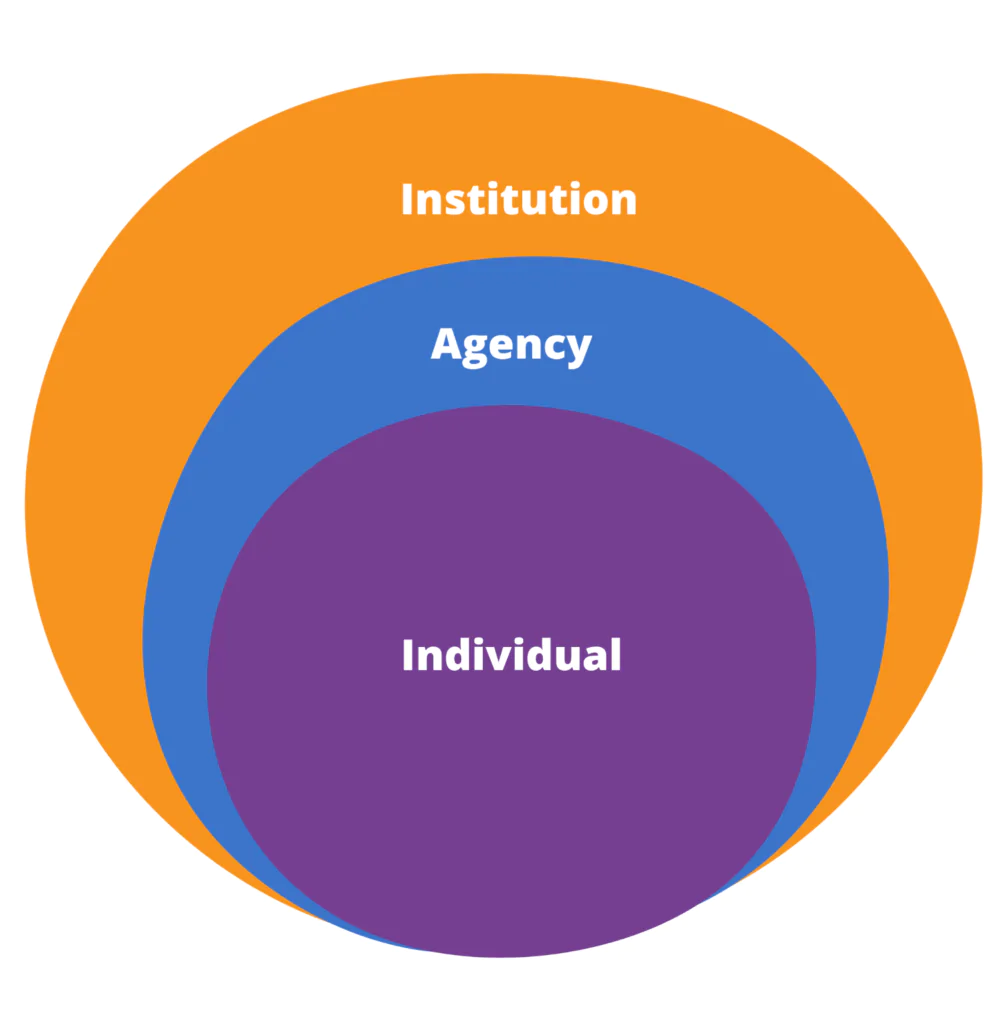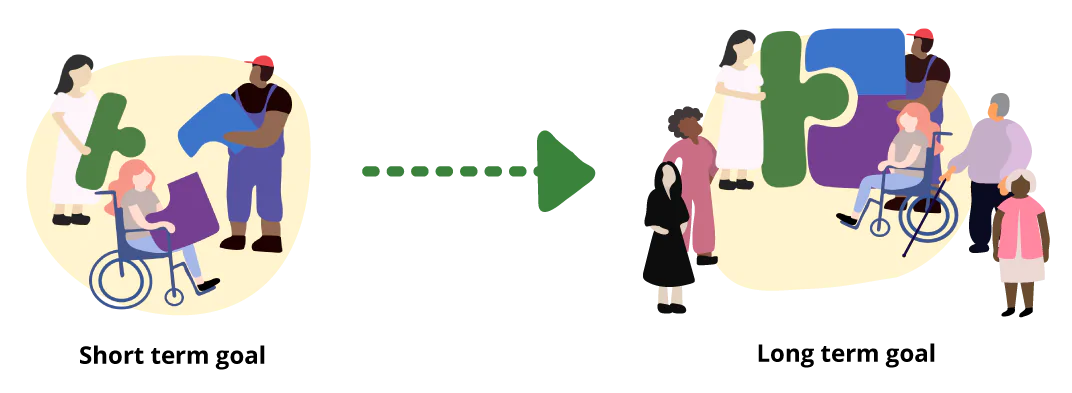What is community engagement?
Community engagement connects City government to the communities we serve. It’s often used to spread information, collect input, and share decision making power.
We engage communities through methods like canvassing, surveys, workshops, and more. Our methods depend on community needs and engagement goals.
What is equitable community engagement?
We strive to center equity in our engagements. That approach is called equitable community engagement.
When we center equity in engagement, we:
- Account for considerations like racism, trauma, and trust.
- Center historically excluded and marginalized communities in decision making.
- Decrease digital, disability, and language access barriers.
- Embrace diversity and prioritize racial equity.
- Honor unique identities and lived experiences.
- Invest necessary funding, staff, and time.
- Share decision making power between City government and communities.
Equitable community engagement strengthens collaborative and inclusive connections between City government and the communities most impacted by our decisions. It’s a practice that requires ongoing commitment to our communities: A commitment to respond to changing community interests and needs. And a commitment to remain open to learning from our mistakes. That means our individual and collective equitable engagement practices will grow over time.
Why do we strive for equitable community engagement?
Engagement is a way for government to share decision making power with the people it serves. And everyone has a right to inform the decisions that impact their lives. Especially communities who’ve been historically marginalized by government decisions and actions, including LGBTQIA+ communities, low-wealth communities, communities with disabilities, and communities of color, including African, Asian, Black, Brown, Caribbean, immigrant, indigenous, Middle Eastern, and Native communities.
Equitable community engagement is central to:
- Building trusting relationships with communities.
- Fostering collaboration between City government and communities.
- Meeting communities’ interests and needs.
- Supporting communities’ ability to pursue their own priorities.
Goals
What are the goals of the Toolkit?
The Toolkit provides guidance and training on equitable community engagement practices. It’s designed to support practitioners within Philadelphia’s City government. But it can also support anyone interested in equitably engaging communities.
The Toolkit helps practitioners:
- Address common inequitable engagement challenges.
- Build a shared community of practice across agencies.
- Build the skills to routinely center equity in engagement.
- Build trusting relationships with communities.
- Collaborate with communities in accessible ways.
- Deepen a practice of critical reflection.
And it addresses the following questions:
- What is equitable community engagement?
- How do we practice equitable community engagement?
- How do we center lived experience in equitable community engagement?
- How do we maintain an equitable community engagement practice?
Equitable community engagement looks different for each community and practitioner. Consider how you can adapt the guidance and training to meet your specific needs.
The Toolkit will grow over time. Together, we’ll add more guides, stories, and trainings to support our equitable engagement practice. To contribute to the Toolkit, provide your feedback using the form at the bottom of this page.
Changes
How can the Toolkit help change engagement practices within City government?
Practitioners are often seen as representatives of the whole of City government when we engage communities. But we’re only one small piece of the puzzle. The organizational culture and values of City government shape our actions and mindsets as practitioners.
- Institution: City government as a whole, made up of the agencies within it.
- Agency: A commission, department, office, or team within City government.
- Individual: An employee of City government.
Practitioners can’t change the institution of City government alone. But we can change our individual actions and encourage other practitioners alongside us. And together, we can start to change the policies and processes that limit our equitable engagement practice.
That’s why the Toolkit is designed to support our individual practice and ground us in a community of practice called the Equitable Engagement Collaborative. To get involved, email engagement.toolkit@phila.gov. Please note that Equitable Engagement Collaborative is only open to City of Philadelphia employees.
What do we need to change engagement practices within City government?
“Equity work is long term. Period.” – City government practitioner
Systems change requires collective action. We need commitment, practice, and reflection from practitioners and leaders across City government.
- Commitment: Sustaining equitable community engagement conditions through investments and mindsets.
- Practice: Acting on equitable community engagement guidance and training.
- Reflection: Embodying equitable community engagement principles through growth and learning.
In the short term, this work aims to strengthen collaborative and inclusive connections between City government and communities. In the long term, the aim is to produce broad systems change by building a shared standard of practice for equitable community engagement across City government.
The Toolkit is one of many efforts to center equity within City government. It joins projects like the Participatory Budget and Racial Equity Strategy.
Throughout our history, many have worked towards equity in City government. We stand on the shoulders of our predecessors who paved the way. The Toolkit builds on their wisdom and honors their leadership.

